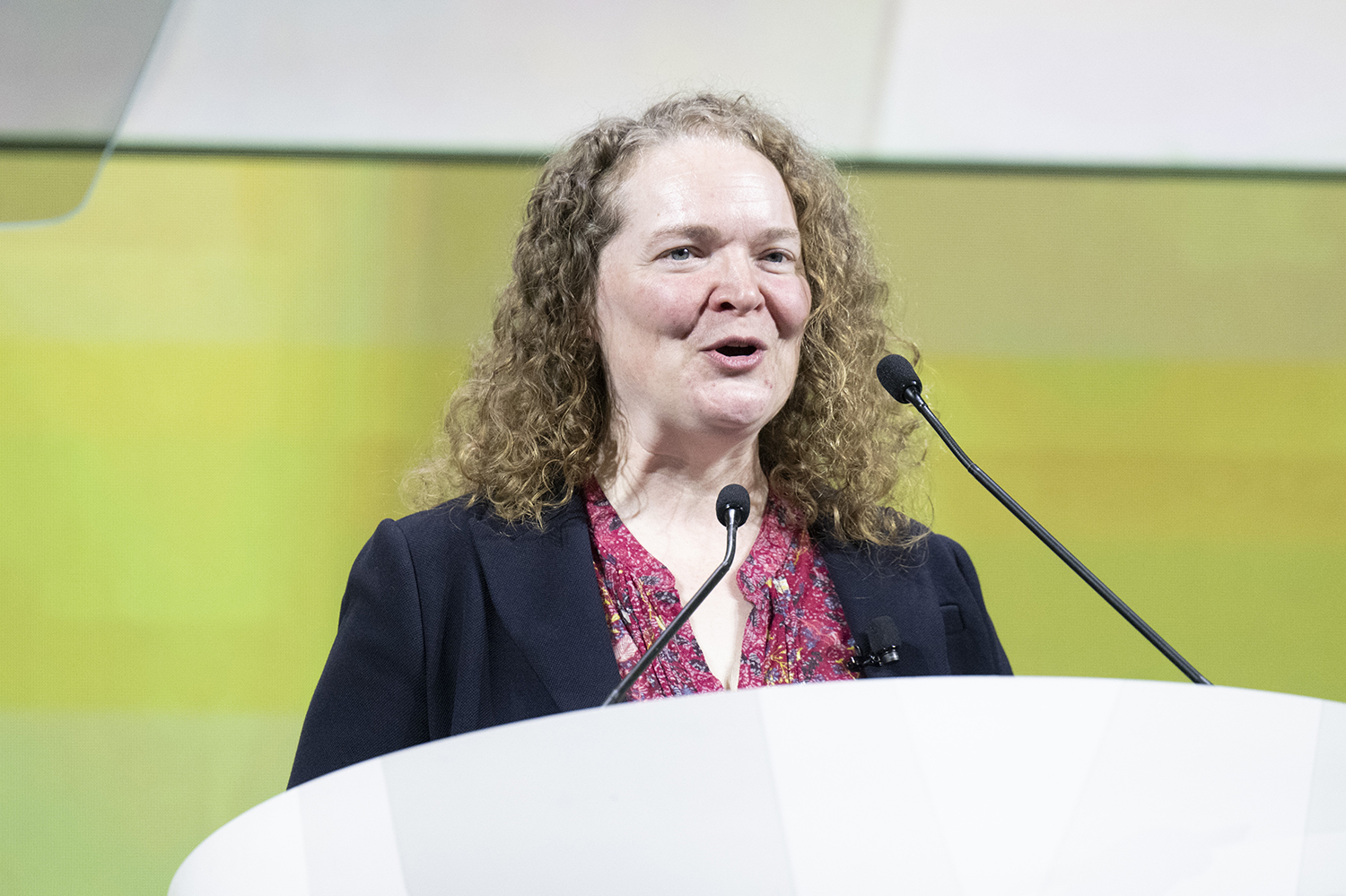LYNCH SYNDROME IS THE MOST COMMON inherited cancer predisposition syndrome, affecting an estimated one in 300 people. The condition increases the risk of multiple cancers over a lifetime but is most commonly associated with colorectal cancer. Endometrial cancer patients have roughly the same frequency of Lynch syndrome as colorectal patients, however, with about 3% of people with each cancer having mutations associated with Lynch syndrome.
In light of these numbers, researchers from Manchester Academic Health Science Centre in the U.K. helped establish guidelines to ensure screening standards in the U.K. were similar for both cancer types. For their efforts, the research team received the American Association for Cancer Research (AACR) Team Science Award on April 7 at the AACR Annual Meeting 2024 in San Diego. (The AACR publishes Cancer Today.)
“When we started looking at this, around 10 years ago, we noticed that despite having similar risk for colorectal cancer and endometrial cancer in Lynch syndrome, there were huge disparities of care,” said Emma Crosbie, a gynecologic oncologist and team lead of the multidisciplinary team in Manchester. She noted how screening guidelines called for testing everyone who received a colorectal cancer diagnosis for Lynch syndrome, and physicians could refer to established surveillance recommendations to ensure patients with Lynch syndrome could be monitored for additional cancers. “None of these things were true for endometrial cancer,” said Crosbie.

Emma Crosbie, a gynecologic oncologist and team lead of a multidisciplinary team at Manchester Academic Health Science Centre in the U.K., speaks as the team accepts the American Association for Cancer Research (AACR) Team Science Award during the opening ceremony at the AACR Annual Meeting 2024 in San Diego on April 7. Photo by ©AACR/Phil McCarten
The team brought together experts for an international consortium, called the Manchester International Consensus Group, to examine evidence and create standards regarding Lynch syndrome testing for people diagnosed with endometrial cancer. They included health economists in the group to analyze the cost-effectiveness of the preferred screening test for endometrial cancer.
These efforts led the National Institute for Health and Care Excellence, which reviews evidence when considering possible adoption of health practices by the national health system in the U.K., to recommend testing for Lynch syndrome in all women who have endometrial cancer, given its cost-effectiveness and ability to save lives.
Cathy Nobil-Dutton, a patient advocate who has Lynch syndrome and was diagnosed with endometrial cancer in 2013, is one of more than 40 advocates attending the Annual Meeting as part of the AACR Scientist«Survivor Program (SSP), an advocacy training program that brings scientists and survivor advocates together to learn from one another during the meeting.
When Nobil-Dutton talks to others about Lynch syndrome, she assumes they don’t know what it is—and her hunch is usually right, she says. As part of SSP, she presented a poster describing how she learned about her predisposition and the importance of screening for Lynch syndrome in families that have multiple people with cancer. But she notes that some people with Lynch syndrome may not be aware of their family history, or they may not have multiple family members with cancer.
Nobil-Dutton’s father and mother were both diagnosed with colorectal cancer within months of each other, and her father died from the disease. Her mother’s first colorectal cancer diagnosis was in 1987—long before screening tests were available to detect known variants associated with Lynch syndrome. When her mother was diagnosed with colon cancer in 2003, she learned she had an MLH1 variant, a Lynch syndrome-associated gene. Nobil-Dutton, who was in private practice as a social worker in Glenside, Pennsylvania, put off getting tested because she was uncertain if a genetic predisposition would make it more difficult for her to carry health insurance. At the time, before the passage of the Affordable Care Act in 2010, it was legal to charge people more for insurance or deny them coverage if they had a preexisting medical condition. Still, given her parents’ history of colon cancer, she had annual colonoscopies and faithfully visited her gynecologist every year.
After Nobil-Dutton received her endometrial cancer diagnosis, she was treated with a radical hysterectomy, followed by radiation and brachytherapy, a treatment that uses radioactive seeds near tumor tissue to eliminate cancer cells. She was also tested for Lynch syndrome and learned she had the MLH1 variant.
As a patient advocate whose mantra is “more previvors, fewer survivors,” Nobil-Dutton notes that people are more familiar with variants in BRCA genes, which increase the chance of developing breast, ovarian and other cancers, but not as familiar with Lynch syndrome. The prevalence of BRCA in the general population is approximately 1 in 400, or 0.2% to 0.3%, although the prevalence rises to 2% in people of Ashkenazi Jewish descent.
“The women with breast cancer have done a great job of getting the word out about BRCA,” says Nobil-Dutton. “But I don’t think primary care doctors and even gynecologists get how so many cancers are associated with Lynch syndrome. They are just not talking about it.”
Nobil-Dutton’s current health surveillance regimen includes an annual colonoscopy, an endoscopy, a skin check twice a year, annual urine testing, oncology visits twice a year and regular blood tests—procedures that constantly remind her of her predisposition and the potential for another cancer diagnosis. She calls the frequent testing a double-edged sword. She laments the constant reminders of her predisposition but feels grateful she is taking measures to reduce her risk. She hopes more awareness will lead more people to get tested for Lynch syndrome.
“If we can identify Lynch syndrome in a person who has endometrial cancer, then we can engage in cancer prevention intervention, like bowel cancer screening, aspirin chemoprevention to reduce their risk of future cancers, and also enable cascade testing of their at-risk family members, and all of these interventions have been shown to save lives in Lynch syndrome,” Crosbie said during a presentation alongside her team members during the AACR Annual Meeting.
Other cancers associated with Lynch syndrome, in addition to colorectal and endometrial cancer, are ovarian, stoma, small bowel, pancreatic, prostate, brain, gallbladder, skin and urinary tract cancers.
Cancer Today magazine is free to cancer patients, survivors and caregivers who live in the U.S. Subscribe here to receive four issues per year.





